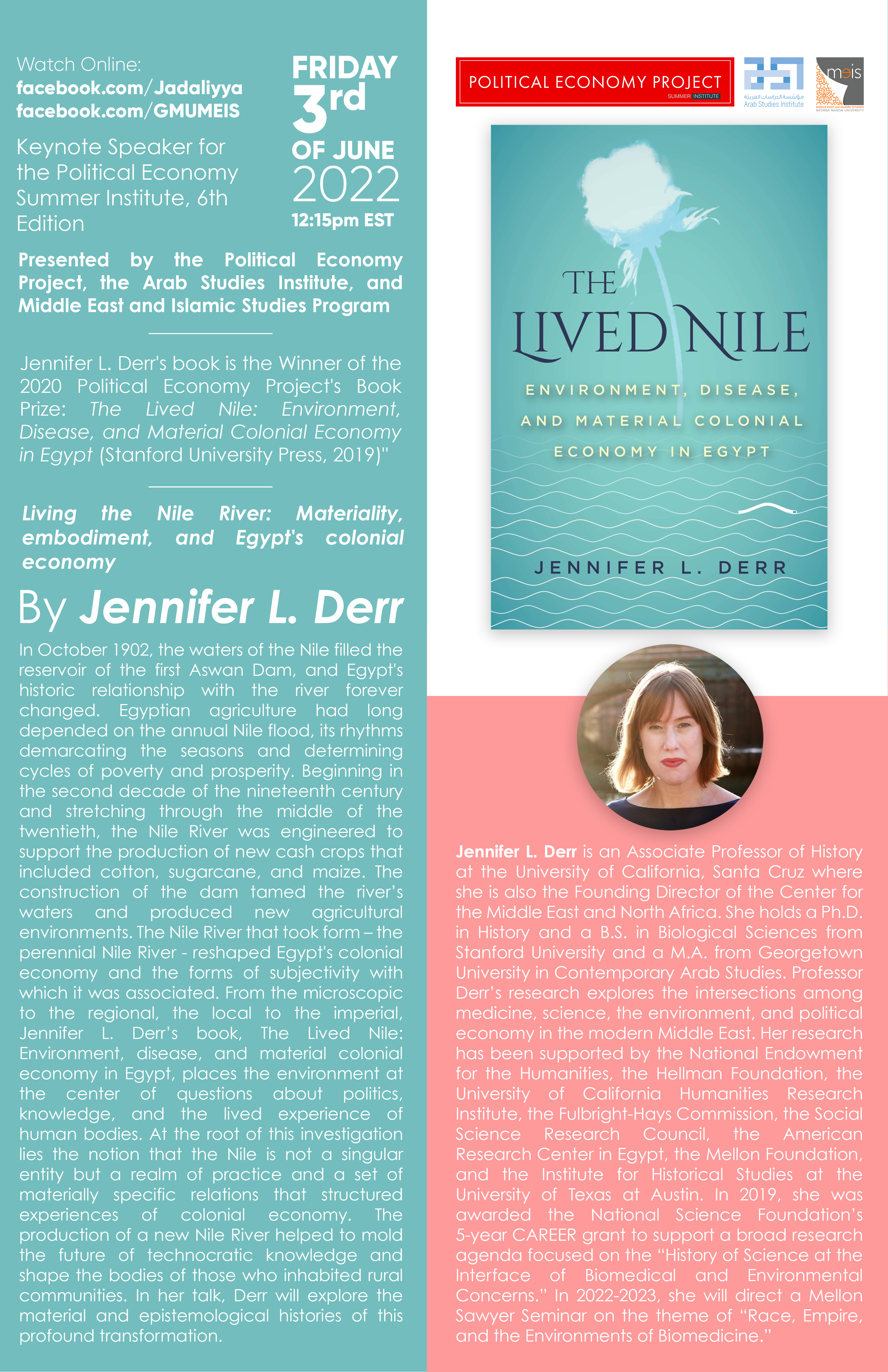The Political Economy Project, the Arab Studies Institute, and Middle East and Islamic Studies Program Present:
Living the Nile River: Materiality, Embodiment, and Egypt's Colonial Economy
By Jennifer L. Derr
Keynote Speaker for the Political Economy Summer Institute, 6th Edition
Friday, 3 June 2022. 12:15 PM EST
Jennifer L. Derr's book is the Winner of the 2020 Political Economy Project's Book Prize: The Lived Nile: Environment, Disease, and Material Colonial Economy in Egypt (Stanford University Press, 2019)
In October 1902, the waters of the Nile filled the reservoir of the first Aswan Dam, and Egypt's historic relationship with the river forever changed. Egyptian agriculture had long depended on the annual Nile flood, its rhythms demarcating the seasons and determining cycles of poverty and prosperity. Beginning in the second decade of the nineteenth century and stretching through the middle of the twentieth, the Nile River was engineered to support the production of new cash crops that included cotton, sugarcane, and maize. The construction of the dam tamed the river’s waters and produced new agricultural environments. The Nile River that took form – the perennial Nile River – reshaped Egypt's colonial economy and the forms of subjectivity with which it was associated. From the microscopic to the regional, the local to the imperial, Jennifer L. Derr’s book, The Lived Nile: Environment, Disease, and Material Colonial Economy in Egypt, places the environment at the center of questions about politics, knowledge, and the lived experience of human bodies. At the root of this investigation lies the notion that the Nile is not a singular entity but a realm of practice and a set of materially specific relations that structured experiences of colonial economy. The production of a new Nile River helped to mold the future of technocratic knowledge and shape the bodies of those who inhabited rural communities. In her talk, Derr will explore the material and epistemological histories of this profound transformation.
Featuring
Jennifer L. Derr is an Associate Professor of History at the University of California, Santa Cruz where she is also the Founding Director of the Center for the Middle East and North Africa. She holds a Ph.D. in History and a B.S. in Biological Sciences from Stanford University and an M.A. from Georgetown University in Contemporary Arab Studies. Professor Derr’s research explores the intersections among medicine, science, the environment, and political economy in the modern Middle East. Her research has been supported by the National Endowment for the Humanities, the Hellman Foundation, the University of California Humanities Research Institute, the Fulbright-Hays Commission, the Social Science Research Council, the American Research Center in Egypt, the Mellon Foundation, and the Institute for Historical Studies at the University of Texas at Austin. In 2019, she was awarded the National Science Foundation’s 5-year CAREER grant to support a broad research agenda focused on the “History of Science at the Interface of Biomedical and Environmental Concerns.” In 2022-2023, she will direct a Mellon Sawyer Seminar on the theme of “Race, Empire, and the Environments of Biomedicine.”
